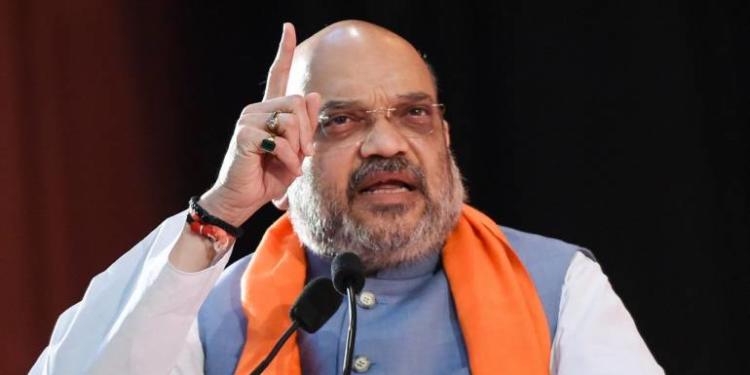In a development which can be considered as a big step towards strengthening India’s internal security mechanism, the lower house of the Parliament has passed the Unlawful Activities (Prevention) Amendment Bill 2019. While 287 members of the Lok Sabha voted in favour of the Bill, only eight dissented. The Congress MPs staged a walkout, demanding that the Amendment Bill be sent to the Standing Committee for review, while Home minister Amit Shah justified the provisions vehemently.
The Amendment Bill seeks to crack down on terrorism by enacting stringent provisions. The Act already empowers the central government to designate an organisation as a terrorist organisation if it:
- commits or participates in acts of terrorism
- prepares for terrorism
- promotes terrorism, or
- is otherwise involved in terrorism.
The Amendment Bill provides for empowerment of the central government to designate individuals as terrorists on similar grounds. This will be a crucial addition to the powers of the central government to crack down on terrorists.
The Bill also seeks to additionally empower the NIA officers to seize property in the course of their investigations into terror-related cases. The amendment provides, “if the investigation is conducted by an officer of the National Investigation Agency (NIA), the approval of the Director General of NIA would be required for seizure of such property.” As per the existing Act, an Investigating Officer can proceed towards seizure of property connected with terrorism after taking the prior approval of the Director General of Police (DGP).
The existing Act provides for investigation of cases by the officers of the rank of Deputy Superintendent of Police or Assistant Commissioner of Police or above. The Amendment Bill seeks to additionally empower the officers of the National Investigation Agency (NIA) of the rank of Inspector or above, to carry out investigations.
These are some of the key amendments which the Bill seeks to make in the anti-terror law. These amendments were vehemently objected by the opposition leaders in the Lok Sabha. Karti Chidambaram, Congress MP, pointed out that the law can be potentially misused by the future governments. He said, “This is the trend of every government – every government wants to centralize power. But what if there is not an enlightened government? Is this government assuring us that the law will not be misused in future? Are you putting processes in place under which misuse will not happen? Had it (the law) been there earlier, would you have been able to prevent Pulwama or Pathankot? Can they prevent terrorist attacks because there are tougher laws?”
AIMIM MP, Asaduddin Owaisi opposed the amendment clause allowing NIA officers to seize property in terror related cases. He said, “When there is seizure of property, where is judicial scrutiny. You are violating federalism. How can NIA take state property? That is a violation.” NCP MP MP Supriya Sule also opposed the Bill and argued that the law “unfairly targeting social activists.”
However, Union Home Minister Amit Shah gave a strong reply to the apprehensions made by Supriya Sule. He made it clear that there is no intent to target social workers but if someone promotes urban Maoism in the garb of ideology, then the government has no sensitivity towards them. He said, “The police are not interested in nabbing social workers, but those who work to foster Urban Naxalism, do not have our sympathies and we will not tolerate it. They need to be stopped, they misguide the poor and let them pick up arms against the state.”
With Union Home Minister Amit Shah at the helm of affairs, some serious damage to the prevalence of the urban naxal community is on the cards. After extending the powers of the NIA, the amendment to the UAPA is sure to have rattled the nexus between the left wing extremism and Islamic terrorism. Naturally, many who have enjoyed the freedom to propagate poisonous ideologies and have been able to cow down the security apparatus of the state through several tactics shall not find the same conducive environment anymore. Amit Shah, who does not mince his words, is set to uproot challenges to India’s internal security.

























